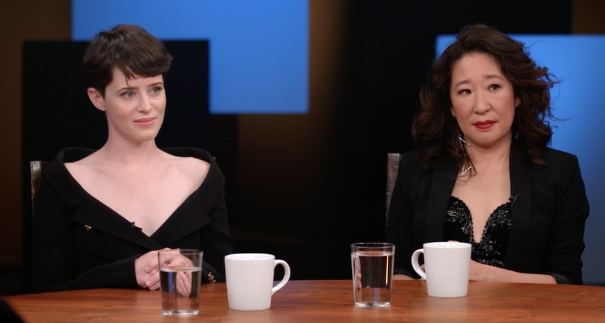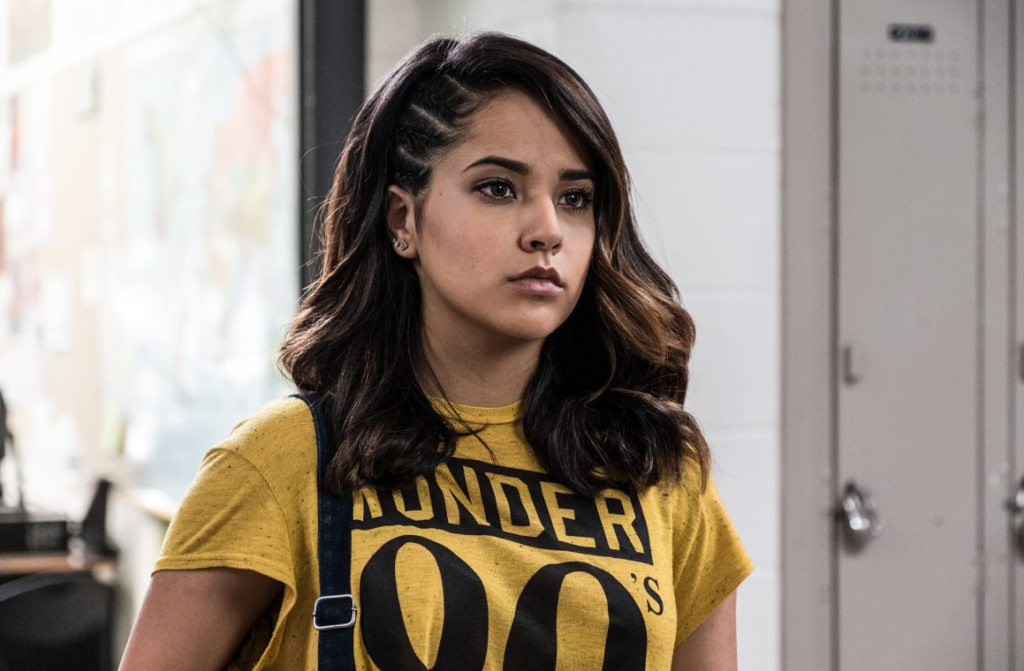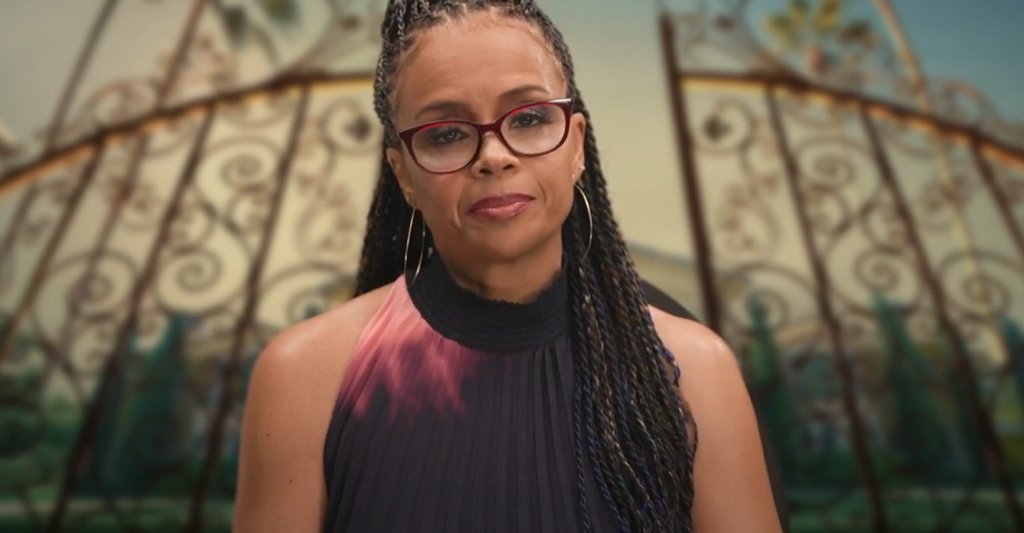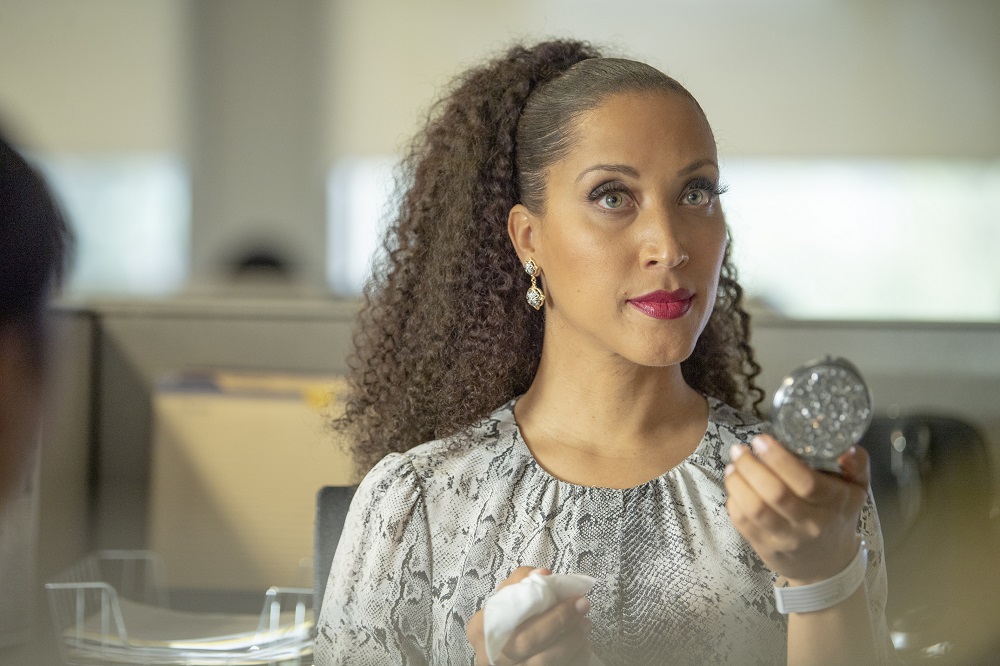The latest Hollywood Reporter roundtable features TV actresses who portray women claiming — or reclaiming — power. Maggie Gyllenhaal plays a sex worker making name for herself as an adult film director on “The Deuce”; “Killing Eve” sees Sandra Oh’s character, an MI5 assistant-turned-spy, tracking down an international contract killer; Angela Bassett is a take-no-bullshit cop on “9-1-1”; Elisabeth Moss is rebelling against a patriarchal, fundamentalist regime in “The Handmaid’s Tale”; Thandie Newton is a self-aware (and rightfully pissed) android on “Westworld”; and Claire Foy is literally the Queen on “The Crown.”
During their wide-ranging chat with THR, the six women discussed equal pay, and how the recent “Crown” pay debacle has affected other actresses’ checks, having control over nude scenes, and fielding offers for one-dimensional roles.
Highlights from the conversation are below. You can read the full piece over at THR.
Foy on finding out she was earning less than co-star Matt Smith on “The Crown”:
“I [could have] kept my mouth shut and said, ‘I have nothing to say, I’m a robot.’ I was part of a really incredible show that I’m really proud of and grateful for, but that shouldn’t stop me from having an opinion about something that I have been brought into the center of. It would be very different if it was something that I didn’t have an opinion on, but it’s something that I feel really strongly about and that I had a suspicion of … Looking back now at the conversations you have at the beginning of doing a deal and all that, and this may be a cultural thing, but in the United Kingdom we don’t talk about money.”
“And the thing is, at the beginning of the deal when they’re saying, ‘This is gonna happen and you’re gonna get paid this and blah, blah, blah,’ I have never felt that I would ever be in a position where I could ask [for more] and I would know what was happening and I would know what decisions were being made. But they used that to their favor, [the fact] that you can’t, and they’d all say, ‘But you’re not worth that.’ And you go, ‘You’re right, I’m not.’ Because that’s what you say to yourself when someone tells you that, and you absorb it.”
Newton and Gyllenhaal on how Foy’s experience got them equal pay at HBO:
Newton: “[HBO is now paying men and women equally] because of what [happened on Foy’s] show. They’re now having all the men and women [making] equal pay. It’s a revolution.”
Gyllenhaal: “It’s true. That’s a place where honestly there was so much talk, and where was the action? And then I just get a call going over the bridge to Brooklyn saying my salary now is way higher than I ever considered it would be, and it’s because of these conversations. At first, I was like, ‘Wait, this is not fair. Why do I get to win the lottery?’ And then I went, ‘No, it’s been unfair to the point where I’ve digested it and accepted it without ever considering that it could or should be equal.'”
Bassett and Moss on the power and confidence to ask for equal pay:
Bassett: “I’m probably feeling a little bit more empowered to do so, but for so long it’s just been about wanting to work. And wanting to be paid fairly, sure, and not having a frame of reference of what someone else is getting or the fear of, if you over-reach you’re going to lose the job.”
Moss: “When you’re leading the show and you’re the face of the show and a lot of people are making a lot of money off of that face and your work, it does put you in an empowered position. It’s not just financial, it’s about other ways of having control and a say, which frankly no one is used to. You start asking for something, and they’re like, ‘Oh right, I guess you could have that. No one has ever asked.'”
Gyllenhaal on producing and fighting for her character on “The Deuce”:
“I asked to be a producer on my show because I’d never done this thing before where you get three scripts and the season is 10 scripts and then you might go on for three years. And I’m playing a sex worker, and of course I have to take my clothes off all the time, and I’m like, ‘Wait, I have to be able to know that I will be included in the conversation.’ But, actually, I wouldn’t feel comfortable saying, ‘Could you please push my call time 25 minutes?'”
“In our show there is lots of prostitution, lots of transactional sex, lots of fake orgasms. They’re not called fake orgasms, but you cut in on the end of a sex act between a sex worker and a John and you hear this loud orgasm, and I said to David Simon, the man running our show, ‘I think you need to see a real feminine orgasm in order to show the contrast and to show that these are performative. It will illuminate the misogyny and the performance and all that stuff.’ When I first said it to him, he pretended to spit his water back in his cup. But then he wrote a scene where my character is sleeping with somebody whom she actually wants to sleep with. He doesn’t make her come, and so she turns over and makes herself come … And I was like, ‘This orgasm needs to be the realest orgasm ever. This needs to be one that takes 30 seconds, that’s very quiet, that’s just about her.’ I thought about it, and then I went in and did that on TV. And that’s way more vulnerable than the orgasm that’s the performance.”
“But then I see the cut, and they cut the orgasm. I wrote a dissertation by email, and then I woke up at 6 o’clock in the morning to see if they [read] it. And the second I got to set, I was like, ‘Where is the orgasm?’ I explained to them again why they needed it in. And they put it in.”
Oh on having the freedom to be picky and her lead role on “Killing Eve”:
“It takes a while to get to a point in your career where you can actually make a choice. And after a decade of my life on a show [‘Grey’s Anatomy’], I had enough economic power to be able to say no. Those four years were like active waiting. I was not not working really in here (motions to her gut) to be able to figure out what the right thing is and what it is to say no and what it is to say yes. It’s like falling in love. Now, what I realize is I have a little bit more awareness, a little more consciousness, I want this out of a relationship and I’m just going to wait until they show up because I feel like they’ll show up.”
“I get the script [for ‘Killing Eve’], I’m on the phone with my agent, I remember exactly where I was, right by BAM in Brooklyn, and I’m going, ‘Scrolling, scrolling’ (scans her phone). I’m just like, ‘I don’t know, who am I playing? What’s the part?’ [My agent] goes, ‘Eve! You’re playing Eve.’ Something happened to me in that moment where I couldn’t even see myself [as the central character].”
“So the fact that [creator] Phoebe Waller-Bridge, BBC America, and Sally Woodward Gentle, our producer, said, ‘Yes, why not this [for me]?’ I felt slightly ashamed — and if I can’t see myself in that moment, then other people have that weight as well. And so we need to hold these things up for other people to see.”
Moss on the creative collaboration of “The Handmaid’s Tale”:
“Five years ago I worked with Jane Campion [on ‘Top of the Lake’] … it was my first nude scene and she gave me 100 percent approval, without me asking … It means I have 100 percent approval over all the footage and I can literally say, ‘You cannot use that scene.’ I have it on everything now and they can’t send out a cut that has something in it without me approving it, and it’s just normal now.”
“As one of the only female executive producers [on ‘The Handmaid’s Tale’], obviously there’s a weight there. I have a perspective that nobody else will have, and that’s so respected and it’s so appreciated and that shouldn’t be crazy, but it’s appreciated. It’s totally normal, but it’s nice that it is.”
Newton on being offered “offensive” characters:
“For years we’d be called up and they said, ‘Thandie, we want to go exotic with the role, so get excited. They want to go ethnic with the role.’ And even just that, I would just have to brace myself because it was so deeply offensive. But I wanted to work, and then I would read the script and I would transform it out of this bizarre objectification and I would think, ‘How can I help this? How can I help make this more progressive?’ And I would spend a lot of my time … trying to give more dimension to these characters, these women’s roles.”
“Let’s start looking at the way things are described and let’s take out the incredibly offensive … they have ramifications. I have daughters, I don’t want them thinking you have to be sexy to be powerful — what does that mean?”







